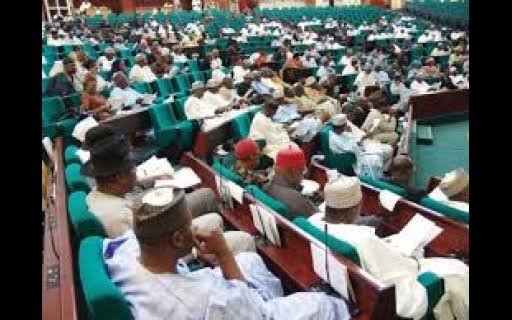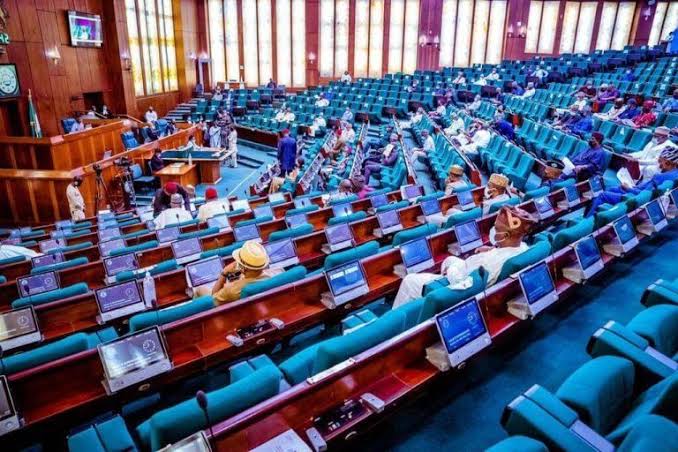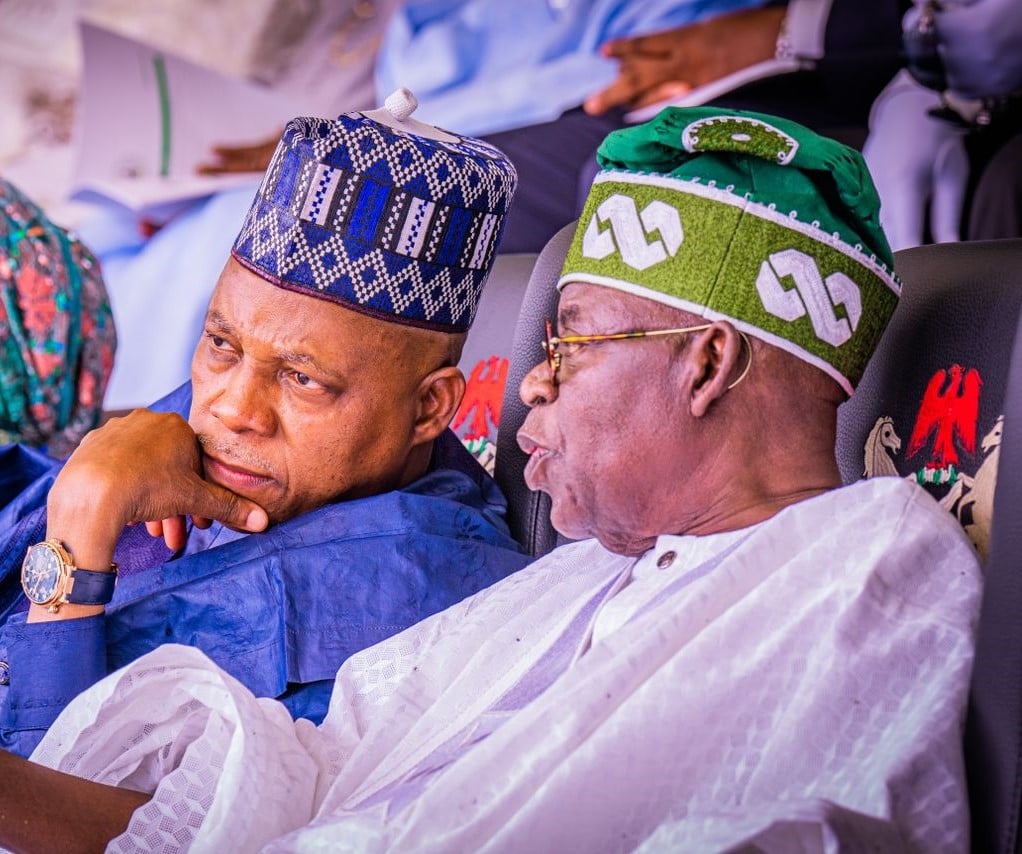Isaac Samuel
Barring any last-minute changes, both chambers of the National Assembly will resume plenary sessions on Tuesday, May 6.
The Senators and House of Representative members commenced their latest recess on March 27 and were billed to return to legislative business on April 29. But the resumption was postponed to May 6.
Justifying the postponement, the clerk of the national assembly, Kamoru Ogunlana, in a statement on April 12 said the earlier resumption date was shelved to allow lawmakers participate in the Workers’ Day ceremony and attend to constituency matters.
With nearly half of its four-year term now expended, the 10th National Assembly is again racing a compelling moral and political burden to shift gear from rhetoric to results.
When both chambers convened in June 2023, expectations were understandably high from Nigerians.
Many of the issues that plagued previous assemblies have resurfaced. This has left many to think that perhaps, the recurring issues associated with Nigeria’s legislative branch is rather systemic rather than the occupiers of the legislative seats.
To date, critical issues like electoral reform, constitutional amendments, devolution of powers, and security sector overhaul have either stalled in committee rooms or been lost in the murky waters of political horse-trading.
With 2027 drawing closer, the window to enact meaningful change is fast narrowing. Stakeholders believe that Nigerians, who naturally are known not to be over demanding are not clamouring for perfection but demanding progress.
When Speaker Tajudeen Abbas unveiled the 8-point Legislative Agenda of the 10th House of Representatives on November 14, 2023, it came with lofty rhetoric and a bold promise which is to align the House’s priorities with President Bola Ahmed Tinubu’s Renewed Hope Agenda while remaining grounded in the core legislative responsibility of addressing the yearnings of the Nigerian people.
At nearly the halfway mark of its tenure, analysts observe that the 10th National Assembly, particularly the House, must now subject its performance to honest introspection.
The 126-page agenda, ambitious in scope, outlined the following pillars: strengthening good governance, improving national security, law reform, economic growth and development, social sector reform, inclusion and open parliament, foreign policy influence, and climate change and environmental sustainability.
Yet, beyond press briefings and town hall engagements, how far have these commitments translated into tangible legislative outcomes?
In terms of national security, the 10th House has convened multiple hearings on insecurity, especially the surge in kidnapping, rural banditry, and the activities of non-state actors. However, oversight alone is not reform.
It has been more than one year since the state police bill passed second reading at the House of Representatives.
Sponsored by Benjamin Kalu, deputy speaker of the house, and 14 others, the bill proposes to transfer the term “police” in the 1999 constitution from the exclusive legislative list to the concurrent legislative list.
The bill, which comprises 18 clauses, seeks to amend sections 34, 35, 39, 42, 84, 89, 129, 153, 197, 214, 215 and 216 of the constitution. If passed into law, it will empower states with the means to address issues unique to their localities.
However, it was learnt that the bill which has received overwhelming support from members of the public might suffer legislative setback as key stakeholders, especially those at the police hierarchy are opposed to its passage.
For instance, at an event last year, Inspector General of Police (IGP) Kayode Egbetokun registered strong opposition to the proposal for the establishment of state-controlled police forces.
Citing a range of challenges and potential risks, the IGP articulated the position of the leadership of the Nigeria Police Force, asserting that the country is not yet prepared for such a transition.
“It is the submission of the leadership of the Nigeria Police Force that Nigeria is yet to mature for the establishment of state-controlled police,” Egbetokun said
On this, all eyes are on the lawmakers to see how they will navigate the contentious issue as legislation that decentralizes policing, promotes intelligence-sharing, and ensures accountability within the armed forces should always top the legislative calendar.
On the economy, Speaker Abbas pledged to “use every legislative tool to create jobs and reduce poverty.”
Yet, despite budget scrutiny and appropriation debates, there remains a disconnect between appropriated funds and real economic relief for citizens.
Instead, according to the World Bank’s latest April 2025 Poverty and Equity Brief for Nigeria, poverty rate among Nigeria’s rural population has reached an alarming 75.5 per cent.
The World Bank stated that rural dwellers are overwhelmingly bearing the brunt of economic stagnation, inflation, and structural challenges that have characterised the country’s growth trajectory in recent years.
Observes are of the opinion that the House must now push for laws that de-risk small business operations, incentivize manufacturing, and demand transparency in social intervention programmes.
Earlier this year in January, a bill for an Act to repeal the National Directorate for Employment Act, Cap N28 Laws of the Federation of Nigeria 2004 and to establish the National Agency for Job Creation and Human Capital Development has scaled second reading in the lower chamber.
The bill sponsored by Representative Bamidele Salam (Ede North, Ede South, Egbedore and Ejigbo Federal Constituency of Osun state), is to stimulate job creation, foster business growth, and connect employers.
Also, the National Assembly in February, passed the N54.99 trillion 2025 Appropriation Bill. The budget was later signed by President Bola Tinubu.
Addressing journalists at the Presidential Villa where the event took place, Senate President, Akpabio who led the National Assembly delegation which included, Speaker Tajudeen Abbas; Chairman Senate Committee on Appropriation, Solomon Olamilekan, among others emphasised the lawmakers’ commitment to ensuring that budget implementation is effective.
But many Nigerians would see Akpabio’s pledge as a familiar and an annual assurance that budget oversight will be robust and thorough yet, in practice, successive National Assemblies have struggled to convert this promise into positive outcomes for ordinary Nigerians.
This is because despite years of budget scrutiny and oversight pledges, millions of Nigerians continue to fall into the poverty threshold with deem hope in sight.
Indeed, as the 10th Assembly resumes from the Easter break, it must reckon with this credibility gap. What this means is that the lawmakers must ensure that there is clear consequences for executive non-performance.
But perhaps most critically, the resumption also offers a pivotal opportunity for the lawmakers to address Nigeria’s ailing electoral framework.
While the passage of the 2022 Act was celebrated as a watershed moment in the evolution of Nigeria’s democracy, election experts observed that subsequent elections including that of the Kogi, Bayelsa and Imo off-season governorship elections held in 2023 and that of Edo and Ondo state conducted in 2024 have exposed ambiguities, inconsistencies, and some limitations that undermine the integrity and inclusiveness of the electoral process.
As a matter of fact, INEC itself has submitted detailed proposals to the National Assembly, including Constitutional amendments to allow for diaspora, early, and inmate voting; the creation of an Electoral Offences Commission; the regulation of political parties.
On the political front, one issue Nigerians feel should be attended to by the lawmakers is revisiting the ongoing political conflict in Rivers state which led President Bola Tinubu to declare a state of emergency in the oil-rich state.
Both the House of Representatives and Senate at a plenary session approved the State of Emergency, but there was a backlash from Nigerians.
Though the House recently constituted an ad-hoc committee to take over the functions of the Rivers state House of Assembly, there are calls for the National Assembly to ensure that the issues that led to the suspension of Gov. Fubara are resolved so as to allow for democratic governance to return to the state ahead of the June 12 democracy day.
Meanwhile, the Senate and House of Representatives have made commitment to address pressing national issues as it resumes plenary tomorrow.
Speaking on the agenda setting before the end of the second legislative year on 13th June 2025, Chairman, House Committee on Media and Public Affairs, Rep. Akin Rotimi in a statement on Tuesday said members of the 10th House of Representatives resumed legislative activities after about 10 weeks of Easter recess, the House will commence deliberations on issues bothering ravaging insecurity across the country, as well as Constitution Review.
He disclosed that the “House will prioritise debates and legislative actions on pressing national issues, including the recent wave of insecurity in some States of the Federation and other economic concerns.
“These and other matters of critical importance will shape the agenda of plenary sessions as Honourable Members respond to the immediate needs of their constituencies.”
Some of the motions of urgent national importance scheduled for this week include: ‘Investigation of electricity debts owed by MDAs and security agencies, with reference to incidents involving military personnel and power distribution companies’; ‘The need to provide housemanship placement for medical students’; and ‘The urgent need to check fuel importation and strengthen local refining capacity’.
In addition, the House is also expected to hold a Policy Dialogue on the Legislative Agenda
For the Senate, top on the agenda is the further consideration of the 2024 Tax Reform Bills. These were contained in a statement by Senator Opeyemi Bamidele, Leader of the Senate on Tuesday.
According to the statement, the Senate is also set to collaborate with the Executive to address lingering socio-political tensions nationwide, especially the ongoing crisis in Rivers State. He said goal is to foster reconciliation among all stakeholders and address the root causes of the conflict in the collective interest of the public.
He said the ongoing Constitution Review process, led by the Deputy Senate President, Senator Barau I. Jibrin, will be accelerated to strengthen Nigeria’s federal structure.
Similarly, he said the Senate will commence the review of the Electoral Act, 2022, to ensure more transparent and credible elections.
Speaking, a legal practitioner, Barr. Ibrahim Suleiman, urged the National Assembly to treat electoral reform as a matter of national urgency.
“We cannot keep pretending that the 2023 elections were flawless, “Sections of the Electoral Act are contradictory, and INEC’s powers need to be better defined. Nigerians want clarity, transparency, and a process they can trust. Lawmakers must amend the Constitution to allow for diaspora voting especially. That will ensure more inclusivity in the process”, he said.
.





